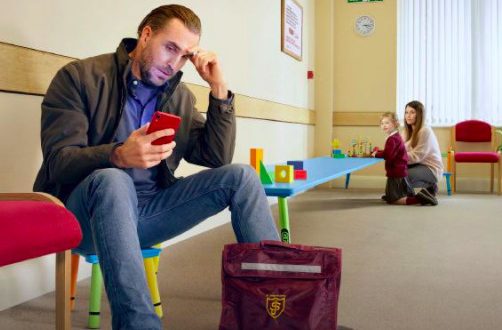GambleAware’s latest study, conducted by YouGov, has examined links between the exposure of gambling activity as a child and later life experiences of problem gambling.
The survey questioned a sample of 18,000 to gauge the extent of gambling participation and problem gambling in the UK, using the measurements of the Problem Gambling Severity Index (PGSI).
PGSI scores are based on eight questions regarding a person’s gambling behaviour, with answering ‘yes’ to one or two questions resulting in an ‘at-risk’ classification, three-seven questions as ‘moderate-risk’ and to all eight as ‘problem gambler’.
The study found that of the 60% of respondents gambled in some way, with the National Lottery being the most popular, having risen slightly in participation from pre-COVID to 44.4% (2019: 44.2%).
Sports betting participation had fallen, on the other hand, from 16.4% prior to the pandemic to 14.2% in 2022, although this did mark an increase from 13.5% in 2021.
This was also true of gambling in casinos, with participation at 1.6% in 2022 (2019: 2% and 2021: 1.3%). Online casino gaming had risen, however, from 3% in 2019 to 4.1% in 2021, but had fallen back down to 3.6% last year.
GambleAware’s main conclusion from its survey revolved around the early exposure of problem gamblers to the practice, such as by seeing family members gamble or watching betting activity on TV at a young age.
Of the 18,000 surveyed, 7.5% were classified as low-risk gamblers, 3% as moderate risk and 2.9% as problem gamblers, for a total of 13.4% with a PGSI score of between one and eight.
Of those classed as experiencing significant harm, GambleAware found that 64% ‘knew someone who gambled regularly’ – i.e. ‘once a week or more’ – before turning 18, compared to 25% of non-gambling adults.
The latest figures from the UK Gambling Commission (UKGC) estimate the number of problem gamblers in the UK to be at 0.2%, whilst the most recent findings from the NHS suggest a 0.3% rate.
Upon conducting follow-up interviews with respondents, GambleAware stated that many viewed familial introduction to gambling as a ‘turning point’ or believed betting to be ‘a hobby that they had inherited from their family that led to harmful gambling’.
Zoë Osmond, Chief Executive of GambleAware, said: “As the lead commissioning charity in Great Britain, we are pleased to publish this year’s landmark Treatment and Support Survey. Gambling harms are a serious public health issue and can affect anyone, including an increasing amount of children and young people.
“We are concerned about the normalisation of gambling across society, with this year’s report clearly highlighting a potential link between early exposure and harms in later life, as well as a worry by parents who feel unable to shield their children from the plethora of advertising and marketing.
The exposure of children to betting has been somewhat of a talking point throughout the two-year course of the Gambling Act review, with much of the emphasis being on marketing and sponsorship activity.
This has contributed to the decision of Premier League football clubs to phase out shirt sponsorships of gambling/betting firms by the 2026/27 season, although they can still advertise on the sleeve of team kits.
Further areas of focus of the report were on the number of ‘affected others’, with the charity estimating that around 3.6 million British adults identify as such, estimating that more than 1.6 million children live with an adult experiencing gambling harm.
Stigma was also raised as a factor, as 48% of people expressing harm stated that they felt ‘embarrassed or ashamed’ of their gambling, with this also being raised in interviews.
This subsequently created a ‘barrier’ to people seeking help for problem gambling, and 34% of high-scoring PGSI classified gamblers stated they had not used any support or treatment in the past 12 months, with 40% citing ‘stigma’ as a reason.
“It is also important to end the stigma associated with gambling, which is acting as a key barrier to those wanting advice and support,” Osmund remarked.
“We encourage people to come forward and open up the conversation about gambling to put an end to stigma and ensure people get the help they need.”
Despite the problems caused by stigma, according to the research, around 59% of those classed as problem gamblers – according to the PGSI – have tried to cut back on gambling over the past year, but 87% have reported relapsing.
Lastly, the survey also examined the impact of the costs of living crisis, which treatment organisations have repeatedly raised concerns regarding its potential impact on gambling participation and subsequent problem gambling.
On YouGov’s participation in the survey, Kate Gosschalk, a Research Manager with the organisation, said: “We are pleased to share the findings from the fourth annual treatment and support survey.
“This year, the research – which included a substantial online survey of 18,000 people and 30 in-depth telephone interviews – explored new areas including when people were first exposed to gambling and the effect gambling has on children.
“This survey can help us learn more about gambling harms in Great Britain and what can be done to ensure people receive the help and support they need going forward.”









